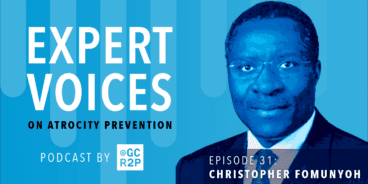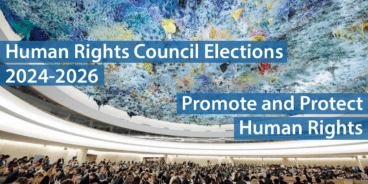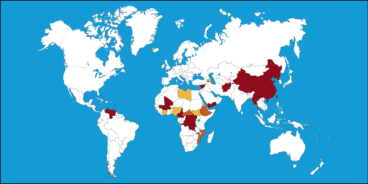
Statement on the Situation in Côte d’Ivoire
With each passing day civilians in Côte d’Ivoire face a growing risk of mass atrocities. Conditions on the ground have deteriorated significantly in recent weeks and the country appears on the brink of a return to civil war. According to the United Nations (UN), post-electoral violence has, since 28 November, killed at least 365 people, displaced over 200,000 in Abidjan, and sent over 80,000 fleeing into neighboring Liberia. The risk of crimes against humanity – crimes that states committed themselves to protect populations from in adopting the responsibility to protect (R2P) at the 2005 World Summit – is all too real and likely to increase should the civil war reignite. UN member states must take swift action to deter and halt perpetrators from committing and inciting mass atrocities and protect at risk populations in Côte d’Ivoire.
Incumbent President Laurent Gbagbo‟s continued intransigence over the election‟s results favoring his opponent AlassaneOuattara, and his readiness to permit an escalation in incendiary rhetoric and violence has heightened the risk of mass atrocities facing civilians. Xenophobic hate speech targeting Ouattara supporters, many of whom are from the north and are perceived by some as „foreigners,‟ and West African Muslim immigrants is rampant. There has also been regular incitement of violence towards UN personnel and peacekeepers who have been the targets of harassment and violence in recent weeks. Attacks by security forces and militias loyal to Gbagbo against those perceived to be supporters of Ouattara are rising, as are attacks on individuals as a result of their ethnic or religious affiliation. In the predominantly pro-Ouattara neighborhood of Abobo in Abidjan, armed Gbagbo supporters have set-up road blocks restricting freedom of movement and have attacked civilians – at least six women were killed on 3 March as they protested Gbagbo‟s continued rule. Violent clashes between armed elements that support the two candidates are increasing with fighting spreading beyond Abidjan. The northern rebel group, Forces Nouvelles (FN), supportive of Ouattara, has been fighting with security forces and militias loyal to Gbagbo in the west of the country and in the capital in the east, Yamoussoukro.
The clashes in the west between the FN and security forces suggest that Côte d‟Ivoire is one step closer to civil war. During the 2002-2003 conflict, crimes against humanity and war crimes were committed repeatedly by the very same parties currently fighting. In the absence of any accountability for those crimes there is little reason to believe the behavior of these groups will be any different today. Clashes along the Liberian border, large refugee flows, and the reliance by all sides on Liberian mercenaries, risks destabilizing Liberia and raises the potential for mass atrocities given the brutal tactics used by Liberian militias during their own civil war.
Gbagbo and Ouattara must insist that their supporters end the fighting and refrain from the commission of mass atrocities. The security forces must exercise restraint, abide by international law and standards on the use of force, and protect all persons in Côte d‟Ivoire irrespective of their political affiliation, ethnic, religious or national identity.
While international actors have swiftly condemned the ongoing violence and warned that there will be accountability, these efforts along with the imposition of targeted sanctions on Gbagbo‟s government by the United States and European Union have thus far failed to deter the commission and incitement of crimes. Mediation attempts by the Economic Community of West African States and the African Union have similarly failed to resolve the conflict or prevent atrocities. While R2P places a special emphasis on prevention, in unanimously adopting it, member states accepted a responsibility to take action to protect and save lives should preventive efforts fail. The UN peacekeeping operation in Côte d‟Ivoire‟s (UNOCI) Chapter VII mandate includes an obligation to “protect civilians under imminent threat of physical violence.” It is imperative that UNOCI, and the troop contributing countries that support it, fulfill this mandate. This includes deploying to areas where populations face the greatest risk, being prepared to take robust action, and having the resources necessary to do so.
The Security Council must use every means possible to deter and dissuade actors from the commission of atrocities and from a return to civil war. Contingency plans should be developed outlining scenarios whereby atrocities may occur and identifying what preventive and protective measures need to be taken, and by whom. Such plans also must set out the options to halt the broadcasting of hate speech and for coercive action including military options should efforts to avert and halt atrocities fail. The Security Council should not wait for the outcome of the African Union panel to take preventive and protective action, it must uphold the responsibility to protect and act now before more lives are needlessly lost.
Related Content


UN Human Rights Council Elections for 2024-2026 and the Responsibility to Protect
